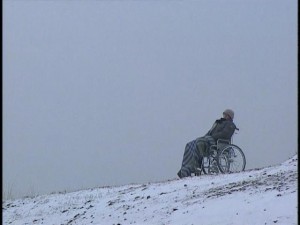The debate about assisted suicide has been reignited after the [English] High Court ruled that two men with locked-in-syndrome cannot be legally helped to die. Tony Nicklinson, 58, and a second man known as Martin, 47, mounted legal challenges in attempt to secure immunity from prosecution for any professional who helped them to die. The men are completely physically dependent and can only move their eyes and eye lids yet remain cognitively sharp. Both want to die but neither is capable of taking their own life.
Lawyers acting for Mr Nicklinson, who suffered a catastrophic stroke in 2005, argued for an extension to the common law defence of ‘necessity’ for murder because the alternative – forcing him to stay alive – is worse. They also argued that the government is in breach of his Article 8 right to ‘privacy, dignity and autonomy’, a right he cannot exercise independently because of severe disability. The court rejected the “bold” submission, stating that there was no precedent anywhere in the world and such socially controversial changes were only for Parliament.
The decision was condemned by Mr Nicklinson and his family but welcomed by medical leaders and religious groups.
Both men are likely to appeal and will most likely end up in the Supreme Court.
Martin, who also suffered a stroke, bid to have the Director of Public Prosecutions (DPP) amend current guidance regarding assisted suicide. The clarification he sought would have meant that if a doctor or lawyer were to help Martin to end his life by taking him to the Swiss clinic Dignitas, they would not face criminal and/or disciplinary action. Martin cannot currently fulfil his wish to end his life as his wife, a nurse and carer, is not willing to actively assist in any steps leading to his death.
The three judges, who said the court had been “deeply moved” by both men’s circumstances, ruled that such matters were for Parliament to decide…
Sadly, the judges were correct. There is no innate “right” to assisted suicide, and it’s not for the courts to discover one. It’s up to Parliament to decide.
And so Parliament should: by changing the law to allow those two men, and others like them, to end their suffering if they so choose.
Get on with it.

